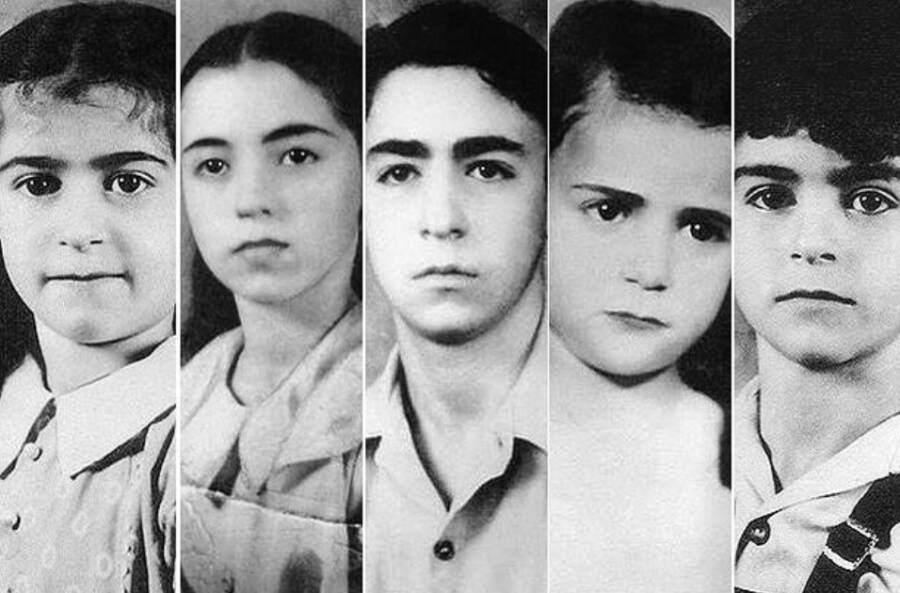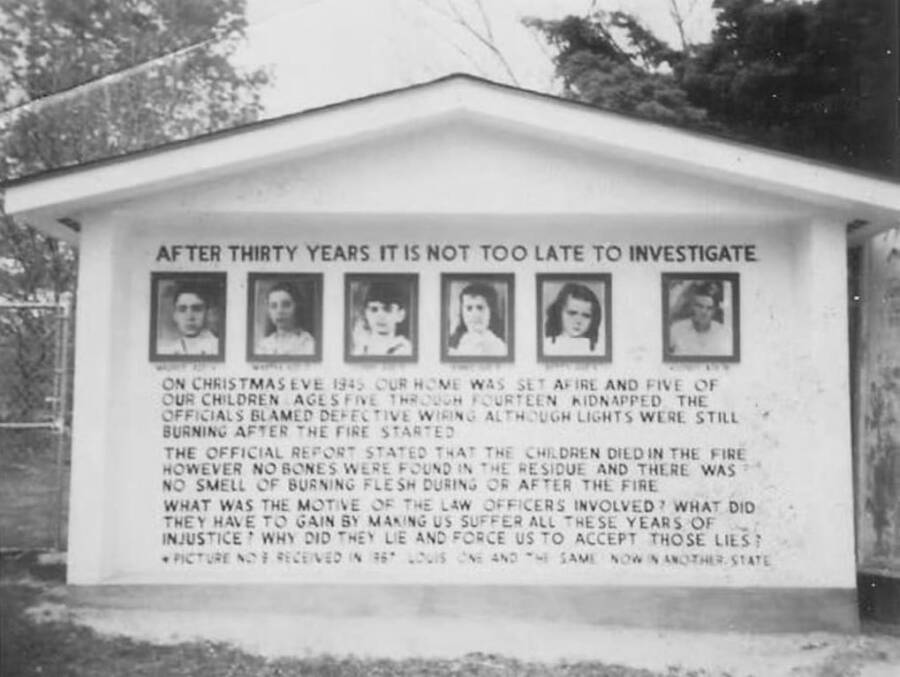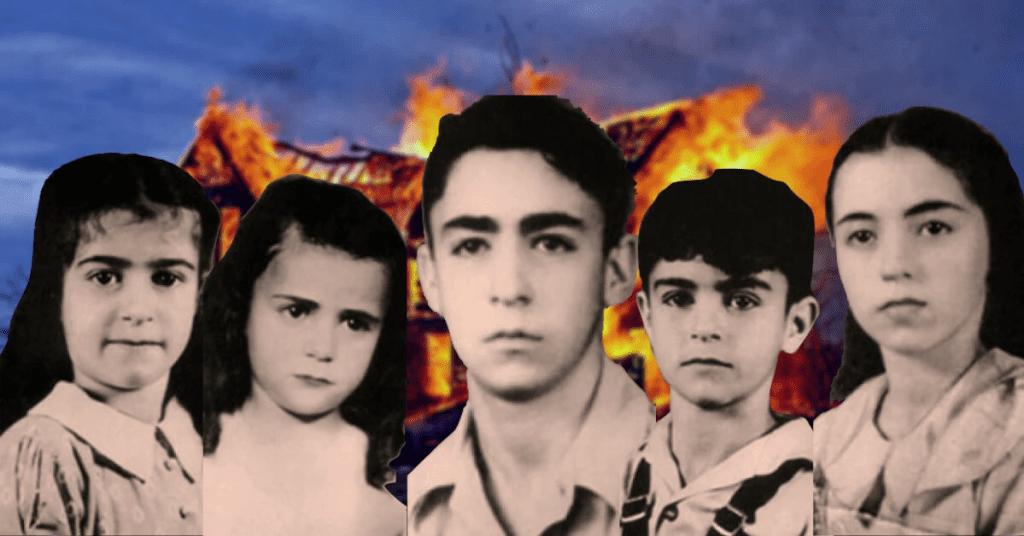On Christmas Day in 1945, the small town of Fayetteville, West Virginia, awoke to a tragic event that would leave its mark on American history forever. A fire consumed the home of George and Jennie Sodder, seemingly claiming the lives of five of their ten children. Yet, as the embers cooled and the smoke cleared, a dark mystery began to unfold—one that remains unsolved to this day.

The night began like any other Christmas Eve. The Sodder family, save for their eldest son who was away in the Army, settled in for the night. But shortly after midnight, mother Jennie Sodder was awoken by a strange phone call. The voice on the other end, accompanied by the sound of clinking glasses, left Jennie feeling uneasy. This was the first sign that something was amiss.
As Jennie tried to return to sleep, a loud bang followed by a rolling noise on the roof jolted her awake again. Dismissing it, she dozed off once more, only to be awakened an hour later by the sight of smoke filling the house. The nightmare had begun.
George, Jennie, and four of their children—toddler Sylvia, teenagers Marion and George Jr., and 23-year-old John—managed to escape the inferno. But five of the Sodder children—Maurice (14), Martha (12), Louis (9), Jennie (8), and Betty (5)—were nowhere to be found. Desperate, George and Jennie tried everything to rescue their children, but every attempt was met with failure.
Despite living just two miles from the fire station, help didn’t arrive until 8 a.m., long after the house had been reduced to ashes. The cause of the fire was quickly attributed to faulty wiring, but the Sodders were skeptical. How could a fire so intense leave no trace of their children’s remains?

The five Sodder children who vanished on Christmas Day 1945.
As the days turned into weeks, the unanswered questions only multiplied. The local fire chief suggested that the fire had been so hot that it cremated the bodies completely, but Jennie Sodder wasn’t convinced. After consulting with a crematorium worker, she learned that bones typically remain even after being exposed to temperatures of 2,000 degrees for two hours. The Sodder home, however, had burned down in just 45 minutes.
In the months leading up to the tragedy, the Sodders experienced a series of unsettling events. A drifter ominously warned George that his house would burn down, and an insurance salesman angrily predicted that George’s children would be destroyed as punishment for his outspoken criticism of Mussolini. These incidents, combined with reports of the children being seen alive in the days following the fire, fueled speculation that the fire was not an accident.

For decades, the Sodder family never gave up hope in attempting to find their missing children.
Desperate for answers, the Sodders contacted the FBI and scoured the country for leads. Nearly 20 years after the fire, Jennie Sodder received a photograph in the mail of a young man claiming to be her son Louis. But like so many leads before, this one also led to a dead end.
George Sodder passed away in 1968, never knowing what happened to his children. Jennie, heartbroken and dressed in black until her death in 1989, remained in their Fayetteville home, which she had fenced in after the fire. The youngest Sodder child, Sylvia, now in her 70s, continues to live in West Virginia, still haunted by the mystery that has shadowed her family for decades.

The case of the Sodder children is one of America’s most haunting unsolved mysteries. Despite the passage of time, the questions surrounding that fateful Christmas Eve in 1945 remain unanswered. The story of the Sodder children serves as a chilling reminder of the dark unknowns that sometimes lurk behind even the most tragic events. As the years go by, the mystery endures, captivating the imaginations of those who seek to uncover the truth.


